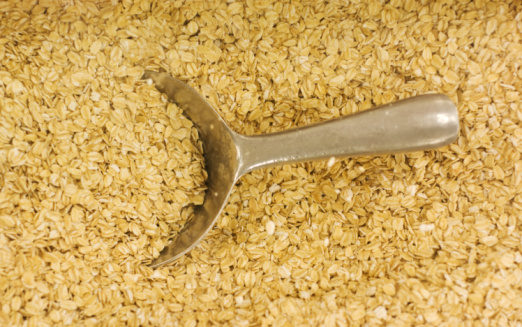Many consumers may turn to the bulk food bins for cost-saving reasons, or simply out of habit. Eco-conscious shoppers will be glad to know that when they go bulk, they’re also voting with their dollars for a more sustainable food supply chain. This is the crux of a new report compiled by Portland State University’s Food Industry Leadership Center (FILC), at the behest of The Bulk is Green Council (BIG). One eco-friendly stat to emerge from it? If every American purchased their coffee in bulk for one year, 240 million pounds of foil packaging would be eliminated from landfill.
On average, according to the FILC report, consumers can save 89% on food costs by choosing bulk food over packaged equivalents. The study as a whole reviewed the environmental benefits of buying in bulk alongside the reduced costs, as well as consumer perceptions about these issues. Consumer responses revealed that shoppers who already buy bulk often are aware of these benefits, and cite them as reasons for their purchases. Said Tom Gillpatrick, Ph.D., executive director of FILC, “Many claims have been made regarding the benefits of buying in bulk, but there have been few quantifiable statistics to support those claims. We’re excited to be the first research team in the United States to substantiate that buying in bulk does offer tangible environmental and economical benefits.”
The food categories taken into consideration included organic pasta, beans, spices, dried fruit, nut butters, confectionaries and several others. Further takeaway statistics from the report on the environmental side, for example, were the fivefold reduction in packaging waste with the purchase of bulk oatmeal, and the fact that if American households bought their peanut butter in bulk for a year, seven pounds of waste would be cut out, per household.
The environmental benefits of investing in bulk foods extend past the actions of consumers to manufacturers, as well. A company that markets bulk foods over their packaged equivalents can save an average of 54% on material and delivery costs in certain key categories, according to the report. Those categories were confections (45% savings), dried fruit (72%), nuts (62%) and trail mix (35%).
Buying in bulk has another benefit for consumers. The process of scooping out and weighing their favorite foods allows them to buy the desired quantity with more precision. Similarly, once they’re brought home, bulk foods are less often thrown away than packaged foods, meaning less food gets wasted. Todd Kluger, a founding member of BIG and vice president of marketing at Lundberg Family Farms, commented on the study, “With more and more U.S. grocery stores now offering a larger selection of bulk foods, these benefits are widely accessible.”
Published in WholeFoods Magazine, May 2012










